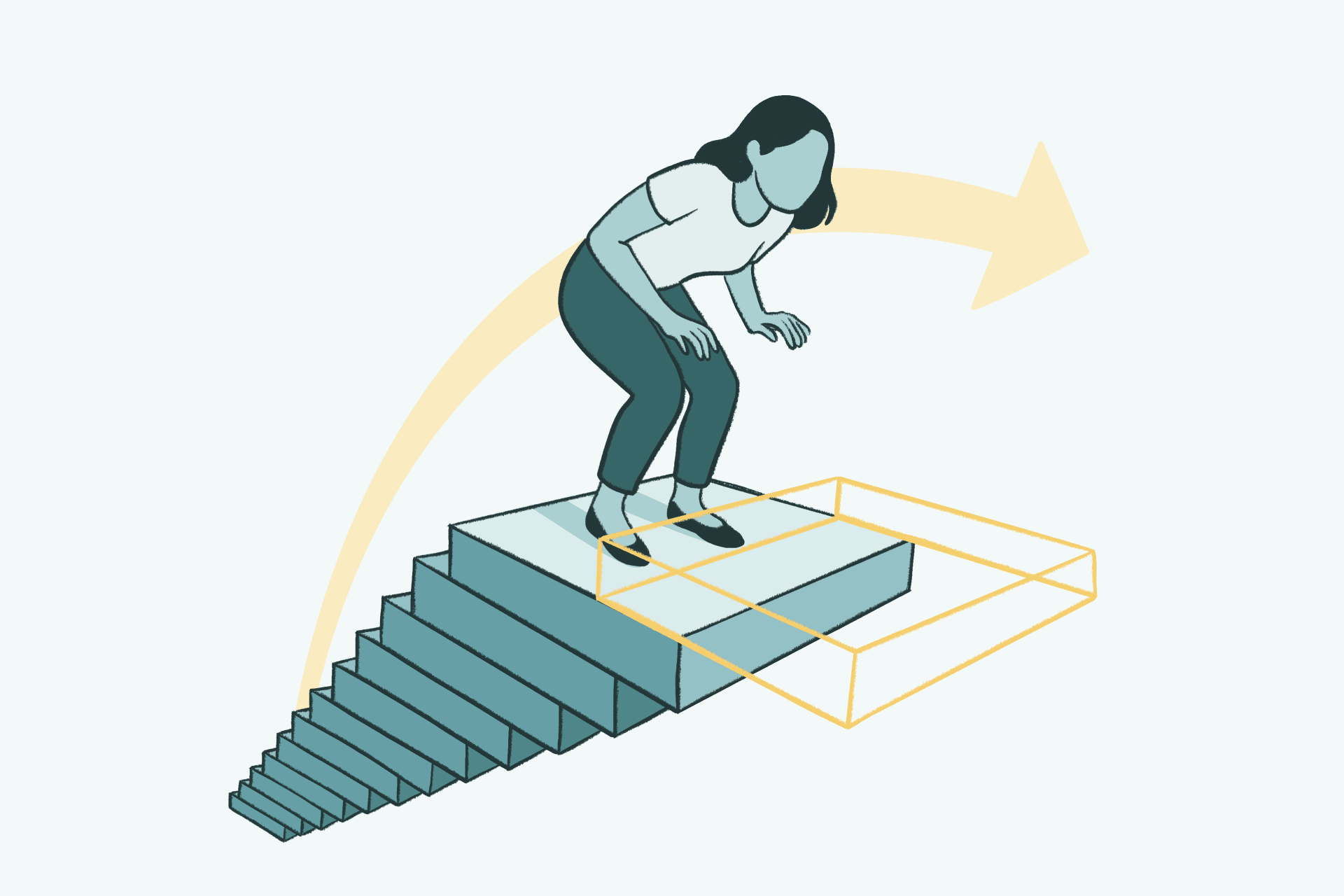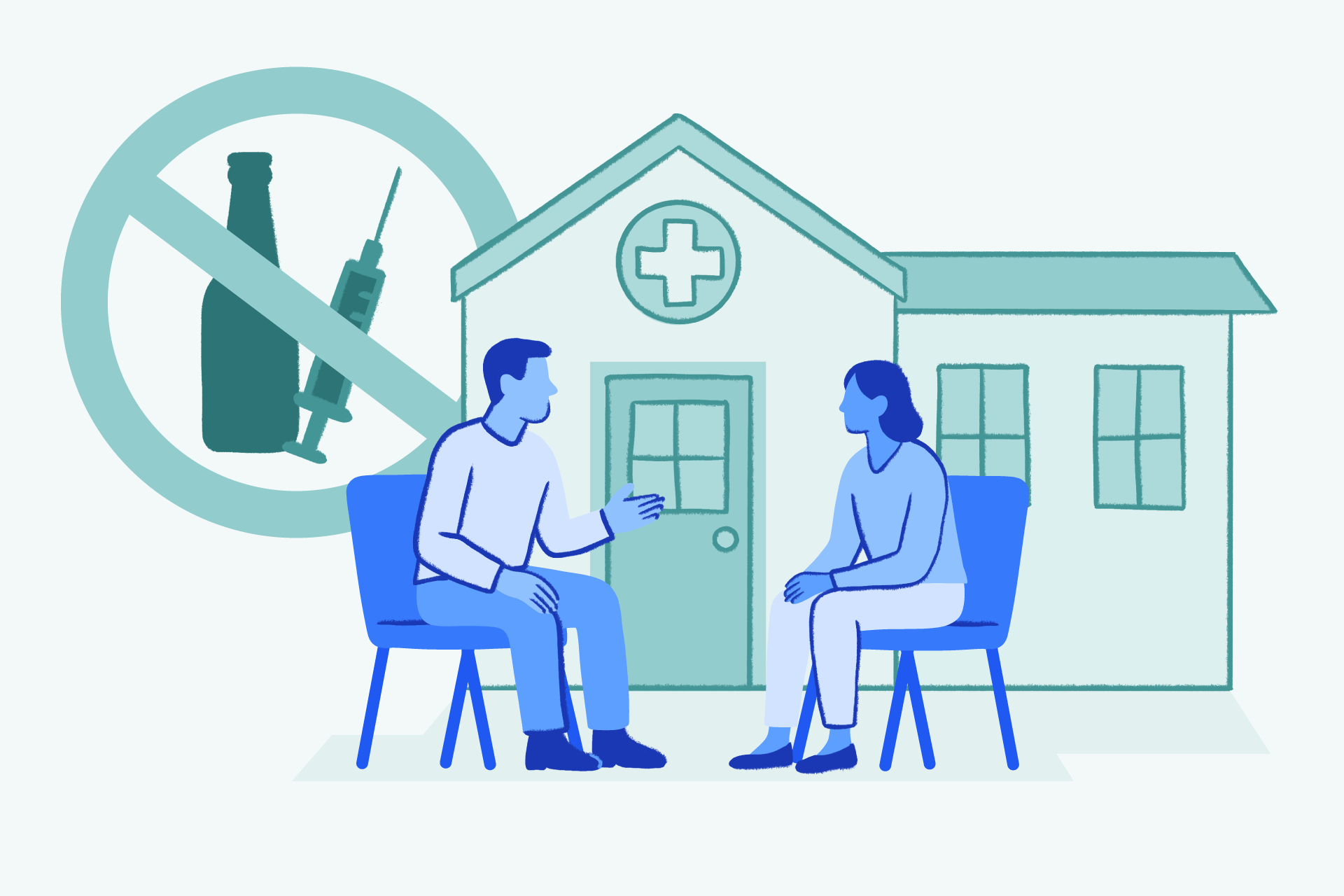What Is the 13th Step in AA? 6 Ways to Protect Yourself and Your Recovery



Hannah is a writer with a focus on holistic wellness. Her work explores post-traumatic growth and the connection between physical and mental health. In addition to writing for Recovery.com she has written meditations for NatureSpace and is a licensed massage therapist.




Hannah is a writer with a focus on holistic wellness. Her work explores post-traumatic growth and the connection between physical and mental health. In addition to writing for Recovery.com she has written meditations for NatureSpace and is a licensed massage therapist.
Recovery should be a place where you feel safe, supported, and respected. Unfortunately, some people in recovery groups experience unwanted romantic or sexual advances from other members. This behavior is often called the “13th step,” and it’s important to know that it’s never okay.
If someone has made you uncomfortable in a recovery setting, you’re not alone. Many people have experienced this, and it’s not your fault. If you’re new to recovery, being aware of this unfortunately common pattern can help you recognize problematic behavior and take steps to protect yourself and your healing process.
Remember: You have the right to feel secure and respected in any recovery space—your safety and ability to continue healing matter most. Let’s take a closer look at what the 13th step is, why it happens, and how to stay safe while getting the support you deserve.
What Is the 13th Step?
The “13th step” isn’t an official part of AA’s 12-Step program. It’s a term that describes when someone with more recovery time pursues a romantic or sexual relationship with a newcomer to the program. This typically involves someone who has been sober for months or years approaching someone in their first few weeks or months of recovery.
The key issue is the difference in recovery experience and the power that comes with it. Someone who has been in recovery longer often has more influence in the group and may be seen as a role model. This dynamic can make it very difficult for newcomers to say no to advances, even when they want to.
Understanding 13th Stepping Behavior
Even when “13th stepping” isn’t intentionally predatory, it can still be harmful because of the power dynamics involved.
People who are new to recovery are in an especially vulnerable place. Early recovery is often marked by emotional instability,1 low self-esteem, and difficulty setting healthy boundaries. A lot of newcomers are also dealing with damaged relationships from their past and may be socially isolated.
People with seniority in recovery programs often hold informal authority within their groups. When someone in this position shows romantic interest, it can feel flattering at first. But it also creates pressure that someone newer to the group may not feel prepared to handle. Even with good intentions, pursuing someone in early recovery takes advantage of their vulnerable state and can seriously harm their healing process.
Thirteenth-stepping is woefully common. Investigative reporter and founder of the The 13th Step podcast Lauren Chooljian, who led a 3-year investigation into predatory conduct by the founder of one support group in New Hampshire, points how just how well-known this practice is:
If you’ve never heard this phrase before, it’s likely that you’re not in recovery. Because people in recovery will tell you this is just the most common thing. I had someone tell me that they heard it first in the ’70s. In the history of addiction treatment, you’ll see it right there with the adoption of Alcoholics Anonymous. It’s a thing that has been around, but a lot of us haven’t been paying enough attention to see it.
Explore Twelve Step Facilitation Treatment Centers
The Risks and Dangers of 13th Stepping
Early recovery requires intense focus on healing and building new life skills. Romantic relationships, especially complicated ones, can pull attention and energy away from this critical work. The excitement or stress of a new relationship can become a distraction when your brain and emotions are already dealing with the challenges of early sobriety.2
Increased Stress and Relapse Risk
Even good relationships involve work and can be consuming at times. But relationships with unhealthy dynamics can be downright draining. Romantic relationships have a way of triggering our most deeply held wounds. Dr. Sue Johnson, a clinical psychologist and developer of emotionally focused therapy (EFT) for couples, explains in her book Hold Me Tight:3
Our past history with loved ones shapes our present relationships. In moments of disconnection when we cannot safely engage with our lover, we naturally turn to the way of coping that we adopted as a child, the way of coping that allowed us to hold on to our parent, at least in some minimal way.
This activation can often be a profound opportunity for healing. But in early recovery, it can all be too much. Heightened tensions and emotions can be relapse triggers, and breakups can truly disrupt your recovery process.
Loss of Safe Spaces
When someone in your recovery group pursues you romantically, it can make meetings uncomfortable or even unsafe. You might feel like you can’t say no without losing your place in the group. Some people end up leaving their support system entirely to avoid an uncomfortable situation, which cuts them off from crucial recovery resources.
Risk of Harm
In some cases, 13th stepping involves more serious boundary violations or even assault. The informal structure of many recovery groups can make it difficult to report problems or hold people accountable for predatory behavior or sexual misconduct.
Chooljian reports that while we often think of recovery as taking place in active drug addiction,
We don’t talk as often about, once substance abuse has ended, it doesn’t mean your brain is back to normal and everything’s fine, your life’s back in order. You’re basically finding out who you are all over again. And so to have an understanding of consent, when you’re still rebuilding your life and trying to figure out the next, healthier phase, is extremely difficult. While the 12 Steps of Alcoholics Anonymous have helped millions of people, I learned through my reporting that they can also be easily exploited because of the way the program is built.
Who Can Be a 13th Stepper?
Anyone can engage in 13th stepping behavior, regardless of their age, gender, or background. The key factor is the difference in recovery experience and group status, not personal characteristics. Someone who has been sober for 2 years has significantly more recovery experience than someone with 2 months.
Age, gender, and social status add more layers to these power imbalances. But 13th stepping can happen between people of any background when there’s a significant difference in recovery time and group standing. The problems occur when someone takes advantage of newcomers’ vulnerability to pursue romantic or sexual relationships with them.
Can Relationships Work in Recovery Communities?
Most experts strongly recommend avoiding romantic relationships during early recovery.4 The first year of sobriety is a time of major life changes when your emotions are heightened and your entire lifestyle is in flux. Your brain and emotions are still healing, and recovery requires all of your attention and energy.
Even relationships between people with similar recovery time can be problematic. When a romantic relationship in a recovery group ends, it affects the whole community. Fear of running into an ex-partner at meetings can drive someone away from a support system that has become a core piece of their sobriety.
Recovery communities work best when they focus on healing and mutual support, not romantic connections. If you’re interested in dating, consider meeting people who lead recovery-friendly lifestyles outside of your recovery circles to protect your safe space for healing.
How to Stay Safe in 12-Step Programs
Your safety and recovery always come first. These strategies can help you protect yourself while still getting the support you need:
- Trust your instincts.
If someone makes you uncomfortable, that feeling is valid. You don’t need to prove that someone has bad intentions to remove yourself from an uncomfortable situation. If someone’s attention feels unwanted or inappropriate, it probably is.
- Consider taking a break from dating.
Many people in recovery find it helpful to focus solely on their sobriety during their first year. This gives you time to strengthen your recovery foundation and develop better boundary-setting skills before navigating romantic relationships.
- Build a strong support network.
Connect with multiple people in your recovery community, not just one person. Having several sources of support makes it harder for anyone to isolate you or make you feel dependent on them. Consider finding a sponsor whose gender or orientation doesn’t pose a risk of sexual tension if that feels safer.
- Understand healthy sponsorship.
A sponsor’s role is to guide you through the 12 Steps and share their experience. They should never pressure you to make specific decisions, ask for personal favors, or cross physical boundaries. If a sponsor behaves inappropriately, you have every right to find a new one.
- Speak up about predatory behavior.
If someone makes you uncomfortable, talk to people you trust. You can also contact group leadership or look for a different meeting. Remember, you’re not responsible for managing someone else’s behavior, but you do have the right to protect yourself.
- Know you have options.
There are many different addiction recovery meetings and groups available. If one group doesn’t feel safe, you can find another. Online meetings have also expanded options for people who need alternative support systems.
Protecting Your Recovery Journey
Your healing journey deserves to unfold in a safe, supportive environment. You have the right to seek help without having to worry about unwanted advances. Trust your instincts, build strong support networks, and remember that your healing and safety are the most important priorities.
If you’ve been traumatized by an experience in your recovery group and need support, see our resource guide for survivors of sexual assault to find the help that’s right for you.
FAQs
Q: What is the 13th step?
A: The 13th step is an unofficial term that refers to when a more experienced member of the group pursues a romantic or sexual relationship with a newcomer to AA or other 12-Step programs. AA only has 12 official steps—this term describes a problematic dynamic that can harm people in early recovery.
Q: What does “13th stepping” mean in recovery communities?
A: “13th stepping” is the act of pursuing romantic or sexual relationships with newcomers to AA meetings. It involves more senior AA members using their recovery experience, group status, or informal authority to approach newer members who are in a vulnerable state. Even when intentions seem good, this behavior takes advantage of power imbalances and can seriously impact someone’s recovery journey.
Q: What are the controversies surrounding the 13th step in recovery programs?
A: The main controversy is that while some people engage in this behavior with seemingly good intentions, it still causes harm due to the innate power imbalance. There’s also debate about when relationships in recovery might be appropriate and how recovery communities should address concerning behavior. A lot of AA groups struggle to balance supporting members while protecting vulnerable newcomers.
Q: What are the risks associated with 13th stepping in recovery groups?
A: The risks include:
- Distracting newcomers from their recovery work
- Increasing stress and relapse risk
- Making support groups feel unsafe
- Potentially leading to more serious boundary violations
When these relationships end badly, people sometimes leave their recovery community entirely, meaning they lose vital support during a vulnerable time.
-
Stellern, J., Xiao, K. B., Grennell, E., Sanches, M., Gowin, J. L., & Sloan, M. E. (2023). Emotion regulation in substance use disorders: a systematic review and meta-analysis. Addiction (Abingdon, England), 118(1), 30–47. https://doi.org/10.1111/add.16001
-
González-Roz, A., Castaño, Y., Krotter, A., Salazar-Cedillo, A., & Gervilla, E. (2024). Emotional dysregulation in relation to substance use and behavioral addictions: Findings from five separate meta-analyses. International Journal of Clinical and Health Psychology, 24(3), 100502. https://doi.org/10.1016/j.ijchp.2024.100502
-
Johnson, S. M. (2008). Hold me tight: Seven conversations for a lifetime of love. Little, Brown Spark. https://www.goodreads.com/book/show/2153780.Hold_Me_Tight
-
University of North Texas, Department of Rehabilitation and Health Services. (n.d.). Recovery planning handout 3. University of North Texas. https://hps.unt.edu/images/-departments/rhs/rtp/13-recovery-planning/handout3.pdf
Our Promise
How Is Recovery.com Different?
We believe everyone deserves access to accurate, unbiased information about mental health and recovery. That’s why we have a comprehensive set of treatment providers and don't charge for inclusion. Any center that meets our criteria can list for free. We do not and have never accepted fees for referring someone to a particular center. Providers who advertise with us must be verified by our Research Team and we clearly mark their status as advertisers.
Our goal is to help you choose the best path for your recovery. That begins with information you can trust.








